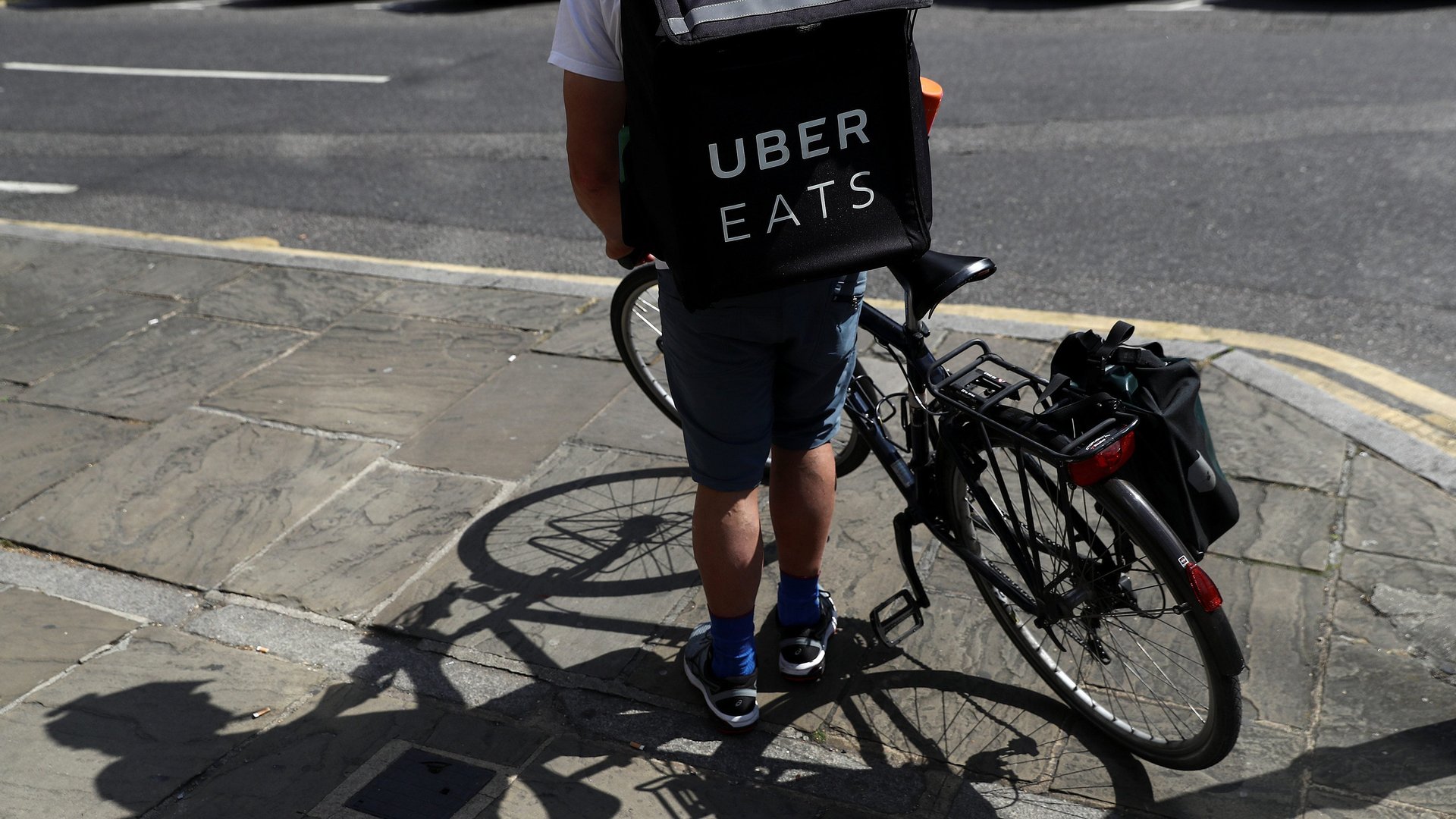Uber is launching a restaurant “accelerator” to fill the gaps it sees on Uber Eats
Uber plans to launch a restaurant accelerator program in London to cater to unmet demand from customers on its Uber Eats food delivery platform.


Uber plans to launch a restaurant accelerator program in London to cater to unmet demand from customers on its Uber Eats food delivery platform.
Uber is planning the accelerator in partnership with Karma Kitchen, a kitchen-space rental company in East London, Karma Kitchen co-founder Eccie Newton told Quartz. Restaurants selected for the three-week program will work on everything from photographing food to streamlining delivery operations. The program, expected to launch in the next few months, will take place at Karma Kitchen’s facility in London’s Bethnal Green neighborhood.
Uber will pick five to seven restaurant concepts to join the accelerator based on “selection gaps” it identifies on the Uber Eats platform within two miles of Karma Kitchen, Newton said. For instance, she said, if Uber noticed lots of customers ordering pizza in an area with relatively few nearby pizza restaurants, the company might invite a pizzeria to the accelerator. “It’s these really hyper-localized, very specific selection gaps in the market,” she said.
Toussaint Wattinne, Uber Eats’s general manager for the UK and Ireland, said the accelerator is designed to help successful restaurants with at least one location expand their business. “We want to really aim for the partner that already has very strong operating metrics,” he said. “We want to help them and support them in expanding because they might not have the financial capabilities, they might not have the confidence to do that by themselves.”
The accelerator program will work intensively with restaurateurs on operations, branding, and marketing. Restaurants will receive help with hiring, passing a food hygiene inspection, streamlining workflows to keep delivery times low, and even using accounting software. “It’s super intense, super fast,” Newton said. Wattinne said Uber aims to run the accelerator multiple times per year, depending on the success of the first one.
Uber will pay Karma Kitchen for the space to host the accelerator, Newton said. Karma Kitchen has a shared kitchen it rents for £40 to £80 ($50 to $100) per eight-hour shift, depending on how frequently tenants use the space. It also rents private kitchens for £81 to £160 per eight-hour shift. Overnight shifts are half-price. Uber plans to hold the accelerator in Karma Kitchen’s shared kitchen.
After restaurants graduate from the accelerator, Uber will guarantee their orders for at least six weeks, Newton said. Uber said it will ensure restaurants receive enough demand and orders to meet basic costs like rent, but won’t directly subsidize businesses. “We’re finalizing a commercial guarantee,” Wattinne said. “Uber is providing a commitment to support those brands as they scale.”
Uber is one of several companies looking at rental kitchens—also known as dark kitchens or ghost kitchens—as a way to set itself apart in the hyper-competitive food delivery space. While food delivery companies compete mainly on price and speed, they are also investing in custom or exclusive restaurants and menu items, similar to how video-streaming services Netflix and Amazon bet on original programming to boost subscriptions. In the world of online delivery, food is content.
Uber has experimented with leasing kitchen space in Paris to “virtual restaurants” that cater specifically to delivery customers. Uber said it has more than 900 virtual restaurants—which it defines as restaurants that don’t have a storefront and can only be accessed online—on Eats in the UK. Deliveroo, a London-based Uber Eats competitor, opened its first rental kitchen in December 2016 to help restaurants expand their delivery reach without opening expensive new locations. Deliveroo built its early rental spaces in windowless metal boxes similar to shipping containers, one reason why they became known as “dark” kitchens.
Newton, 28, started Karma Kitchen with her sister Gini, 27, in September 2018. The company grew out of a catering business, Karma Cans, the two started in 2014 and their own struggle with finding a commercial kitchen to run it from. Demand for kitchen space is high, the Newtons said, noting that it can easily cost £35,000 or more for a restaurant to set up its own kitchen.
Uber co-founder and former CEO Travis Kalanick last year paid $150 million for a controlling stake in the parent company of CloudKitchens, a rental kitchens startup based in Los Angeles. Kalanick, who was forced out of Uber in a messy shareholder battle in June 2017, recently launched CloudKitchens in South Korea and has reportedly eyed expanding into China.